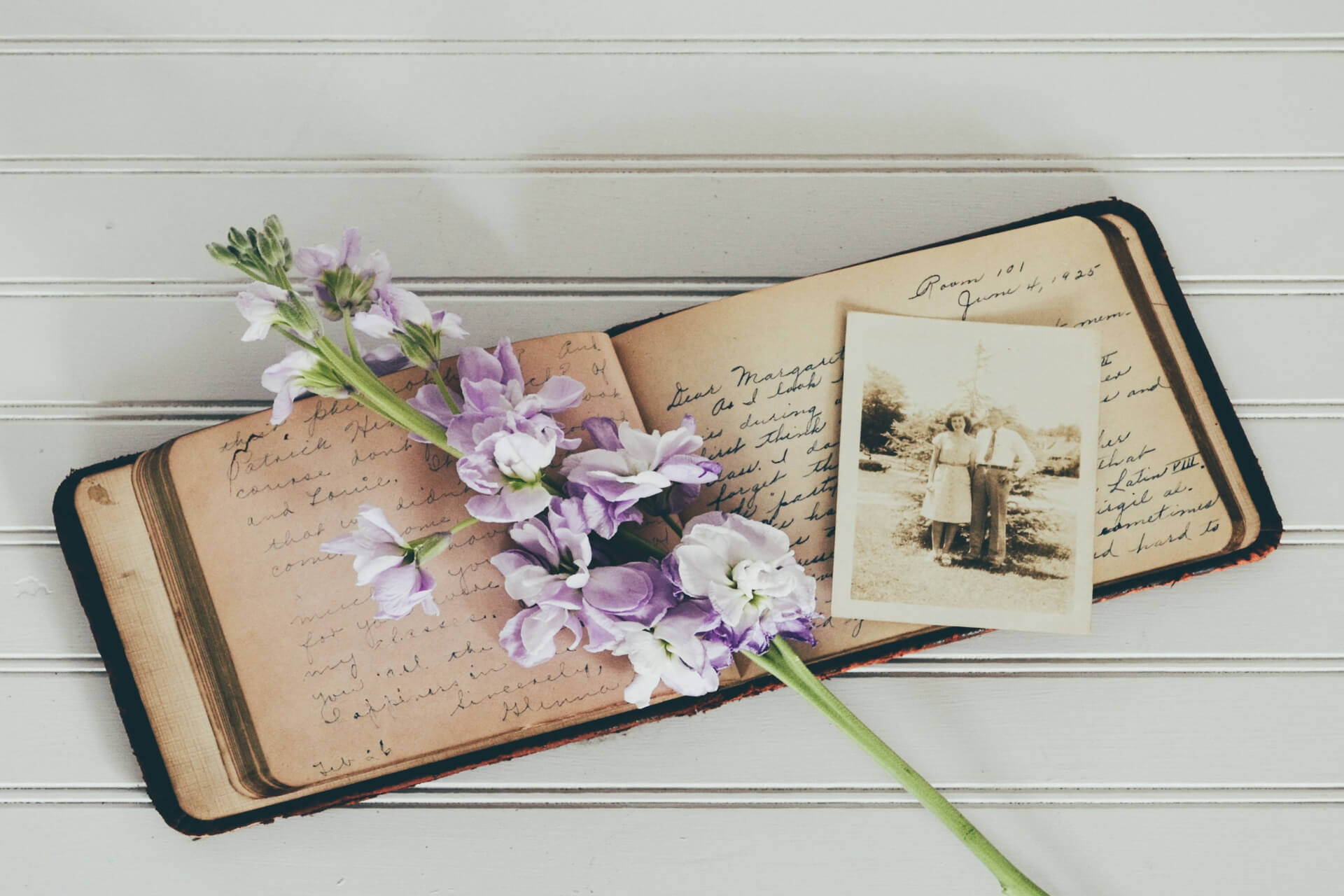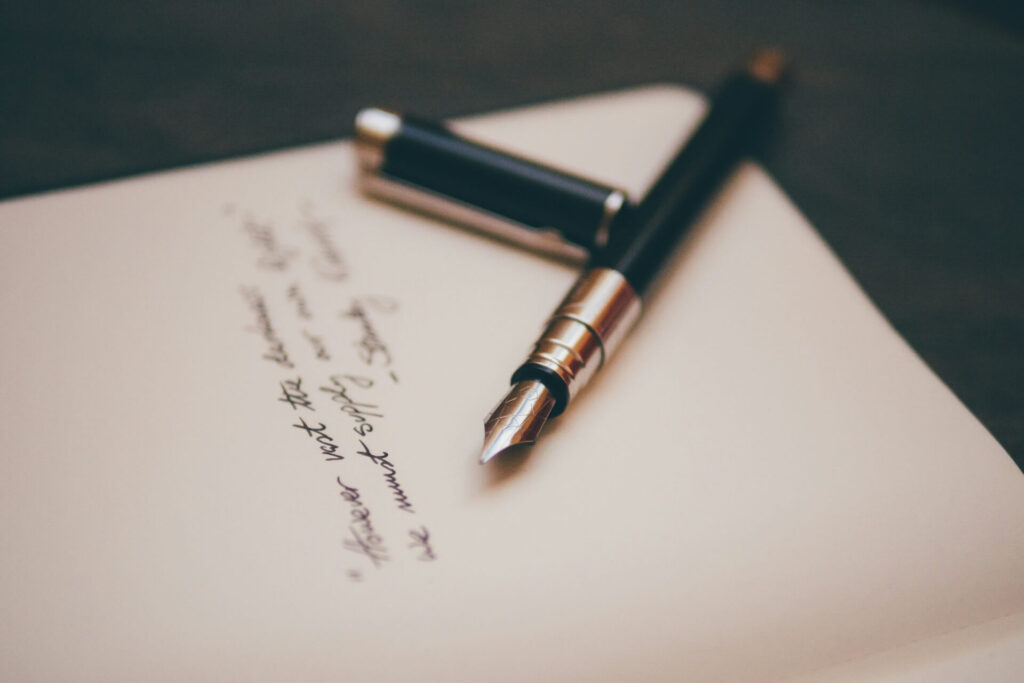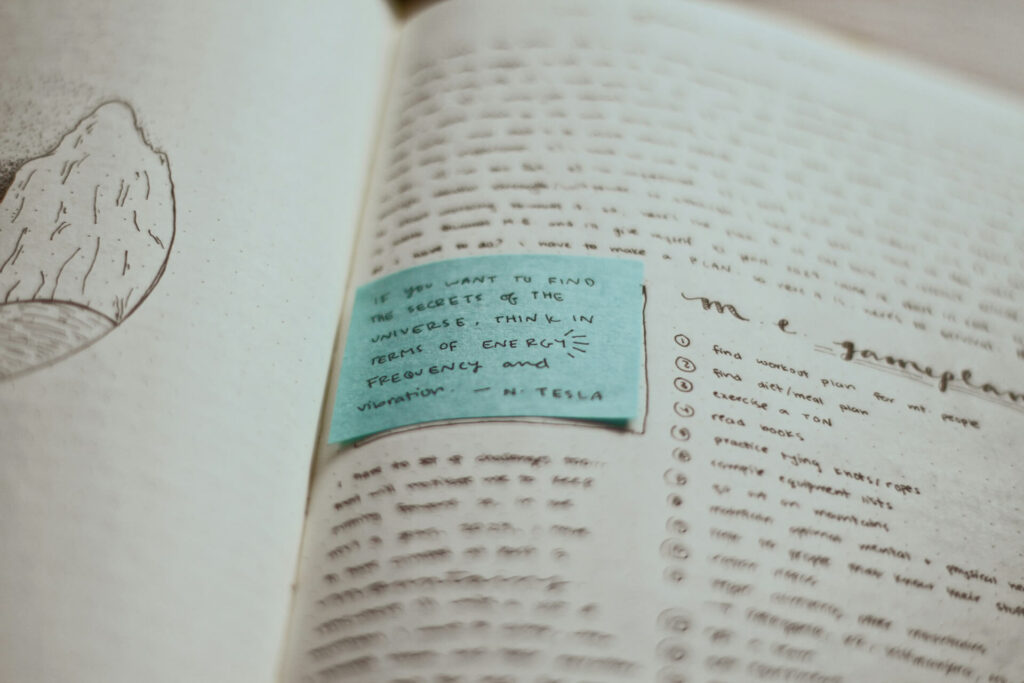
Body + Mind is reader-supported. We may earn an affiliate commission when you buy through some of the links on our site.
Journal prompts for self-growth are beacons in the dark, guiding your pen to paper for days when you want to write but don’t know what to say or even think. It’s like finding a key that opens a door into your soul today. Each day is another key, yet another room to your psyche and self-discovery.
The beauty of prompts lies in their ability to give you a place to start on the blank page — a purpose for writing on this day. Grab your pen, you’re about to surprise yourself.
Prompts are instructions, directions and ideas that help direct your thoughts and manifest what you seek. Not all prompts will connect with you today, and while you can religiously follow the 365 prompts from that book you were given last Christmas, you may find that quite ineffective. A prompt has to resonate with you, speak to you and connect in that moment of writing.
It triggers a thought, memory or idea, and suddenly you want to put pen to paper. It breaks writer’s block and words flow. Best of all, you can reuse prompts as many times as you like. Each day, a prompt will trigger a different response from you.

Taking time to answer self-reflection prompts might feel small, but it creates space for big shifts. Here’s why journaling with intention creates space and time that can be so powerful.

Ready to discover your deeper self? These prompts can show you the way.
1. What would your childhood self think of your life right now — and what advice or snack would they offer you during your chat? How would you explain your life to them?
2. Describe your comfort zone like it’s a cozy Airbnb listing. What’s inside, and what’s missing? Now write a letter to the bnb’s management — yourself — complimenting them on what works and suggesting changes for what doesn’t.
3. Which compliment makes you uncomfortable to receive, and why might it secretly matter the most to you?
4. Imagine meeting your 89-year-old self. What question would you be most afraid to ask? How can you change that fear?
5. Describe “home” using all your senses. What does it smell, look, taste, feel and sound like?
6. If you give your self-doubt a job description, what would it be weirdly good at? Now write a new job description for your self-doubt that builds you up instead of breaking you down.
7. What part of your life feels over-curated — where you count your Ps and Qs — and what part is deliciously messy?
8. Who are you when no one expects anything from you?
9. What’s one truth you’ve outgrown and are still growing into?
10. If healing were a room, how would you furnish it?
11. If your inner critic were an exotic pet, what would it be? Describe it and name it in such a way that you begin to love that sarcastic pet and grow because of them.
12. Draw and “pack” your emotional emergency kit. What do you include and for what “injuries” you may need to treat?
13. Your life is a book. Pause right now, take stock and write CliffsNotes — the highlights and important moments to remember — for your life up to now. A listicle of 10-20 items will work well.
14. What’s your personal myth — the story you constantly tell yourself about you — and how has your truth changed since the story was born?

15. Draw or describe your life as a tree. Decide what season you’re in and what you’ve shed, bloomed or grown.
16. What do you forgive in others but not in yourself? Why is it “acceptable” for them, but not for you?
17. What is your earliest childhood memory? If it’s a special keepsake, describe how you store it or keep it safe.
18. What would the forecast be if your energy were a weather pattern this week?
19. You have the power to uninvent one expectation society placed on you. What would disappear and what would replace it?
20. What chapter of your past are you still trying to write an alternate ending?
21. What part of your personality used to feel inconvenient but now feels like a superpower?
22. Many people rehearse conversations in their heads before having them. Which monologues have you been rehashing for years, and why haven’t you had it yet?
23. Describe what rest actually looks like for you — not what society says it should be.
24. Your closet is filled with different outfits for unique situations. What’s one wardrobe staple you’ve outgrown, one “situation” or event you no longer wish to attend?
25. How would you spend tomorrow if your self-worth weren’t tied to productivity?
26. What would happen if you let yourself be 10% more honest and also spoke up 10% more for yourself?
27. What’s one version of your life you’re glad didn’t work out?
28. Name the secret self-belief you’ve never spoken aloud. Why do you keep it hidden?
29. Explain one beautiful thing about yourself that no mirror can reflect.
30. If you passed on today, what would your legacy be?

Sadly, journaling isn’t a skill taught at school, so you may feel overwhelmed by a list of prompts when you have no idea what to write or how to start. Should you rush out and buy a fancy book, luxury pens and redecorate your home to include a wellness retreat where you can magically turn into Sylvia Plath? It’s great if you can do that, but you don’t have to. It might be better to start simple and focus on one of McKinsey Health’s target areas — mindfulness.
A lined or unlined notebook with a pen or pencil that’s comfortable to write with. All you need to start is a functional setup.
There’s no right or wrong way to approach journaling. That’s the beauty and terror of it. If you’ve always had someone tell you what to do, or tried to copy people you thought were way more successful than you, it’s a lot to suddenly face a blank page and an honest look inside yourself.
Just breathe and take it one prompt at a time. When you doubt, don’t rub it out. Instead, let things play out on the page. Write without planning — between bad grammar and long paragraphs, capture your inner self. Jot down a page or 10 — how much you write is up to you. The paper, your pen, thoughts and the prompt are all dancing together, so let the music play.
Self-reflection prompts aren’t just exercises, they’re mirrors, flashlights and road signs. The more you engage with them, the more grounded and self-aware you become. Whether you’re processing something big or just want to reconnect with yourself, these prompts offer a gentle way in. You don’t need perfect answers — just a willingness to be curious, honest and open.
Your email address will only be used to send you our newsletter, and at any time you may unsubscribe. For more information, see our Privacy Policy.